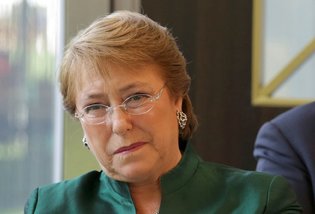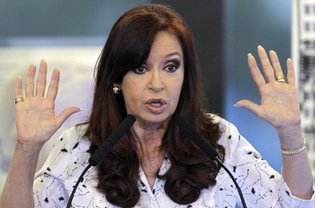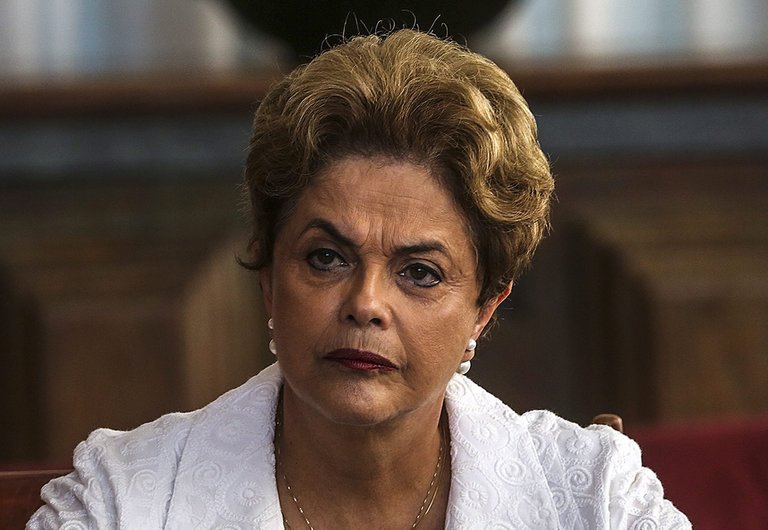In Argentina, former President Cristina Fernández de Kirchner has been indicted, accused of endangering the nation’s finances. In Brazil, President Dilma Rousseff is facing an impeachment trial, and her interim successor has appointed only male ministers. In Chile, President Michelle Bachelet, once hugely popular, has seen her approval ratings plunge.
What has happened to the powerful women of South America?
Mrs. Kirchner was indicted on Friday, and Ms. Rousseff was suspended by Congress a day earlier, potentially sidelining two of the region’s most influential women. With Ms. Bachelet’s government also deeply unpopular, some might be tempted to question how advances by women could seemingly be reversed.
“If we women throw our weight about in a realm that has been exclusive to men, it’s logical that these things will happen,” said Norma Amorín, 73, a retired beautician here.
The fates of all three leaders today contrast sharply with their standing five years ago. In 2011, Ms. Rousseff began her presidency; Mrs. Kirchner won a second consecutive term; and Ms. Bachelet, after completing her first presidential term with approval ratings of more than 80 percent, led a United Nations agency.
Gender, analysts say, is not the cause of the leaders’ current problems. But, they add, the collective decline of the three women points to a persistence of macho attitudes in the region, especially within the political establishment.
“There are powerful forces at play that resist these changes,” said Sergio Berensztein, a prominent Argentine political commentator, referring to how women had gained and were now losing ground in Latin America’s corridors of power.

Mr. Berensztein said the plight of the three leaders should also be considered in the broader context of the crises being endured by incumbent presidents — both men and women — across the region. Corruption scandals and a failure to take full advantage of the revenues from commodities like oil, copper and soybeans have led to increased dissatisfaction with those in power.
As gender scholars grapple with parsing the factors behind the downfalls of Mrs. Kirchner and Ms. Rousseff, they also point to the rise of other female politicians in the region.
María Eugenia Vidal was elected last year as the governor of Buenos Aires, Argentina’s largest and most populated province. For a while, Marina Silva upended the 2014 presidential race in Brazil. And in Peru, Keiko Fujimori could become president in elections next month.
Ms. Vidal’s victory, in particular, was viewed positively here because she did not merely succeed a popular male colleague or spouse.
Still, the focus on her personal life by the local news media, including reports about how she lost weight, points to stuttering progress, said Mariel Fornoni, the director of Management and Fit, a political consultancy in Buenos Aires.
Mrs. Kirchner took over in 2007 from her husband, Néstor Kirchner, who died in 2010. Long before her, Eva Perón, probably Argentina’s most famous woman, rose to prominence in the 1940s alongside her husband, former President Juan D. Perón. Ms. Rousseff, too, was the handpicked successor of a man, Luiz Inácio Lula da Silva.

Several officials from Mrs. Kirchner’s administration, including her former vice president Amado Boudou, have been tarnished by corruption cases. But she received the brunt of the public’s anger on Friday after a judge indicted her on allegations related to a financial scandal that she denies, and a prosecutor sought to extend a money-laundering investigation.
In Brazil, public outrage over a sprawling graft scandal at the national oil company has coalesced around Ms. Rousseff and helped drive impeachment proceedings, even though she is not directly named in the investigation.
In Chile, recent accusations of corruption have embarrassed many business executives and politicians, but a case involving Ms. Bachelet’s daughter-in-law has in large part caused Ms. Bachelet’s approval ratings to plummet.
“It’s as if women leaders are getting all of the backlash for the corruption of men,” said Farida Jalalzai, a professor of gender politics at Oklahoma State University. “It would be surprising if there were no gender dynamics behind this.”
Even though quota systems have boosted the careers of female politicians in the region, there is a sense that traditional attitudes have never really subsided. The latest crop of presidential wives, observers say, are models of femininity.
In Brazil, the new president, Michel Temer, who appointed a cabinet devoid of women, is married to a former beauty pageant contestant. Juliana Awada, the wife of President Mauricio Macri of Argentina, is a fashion designer. And Isabel Macedo, the new fiancée of Juan Manuel Urtubey, a prominent Argentine governor with presidential ambitions, has been an actress in soap operas, as has Angélica Rivera, the first lady in Mexico.
“It’s a manifestation of residual macho attitudes,” Mr. Berensztein said.

